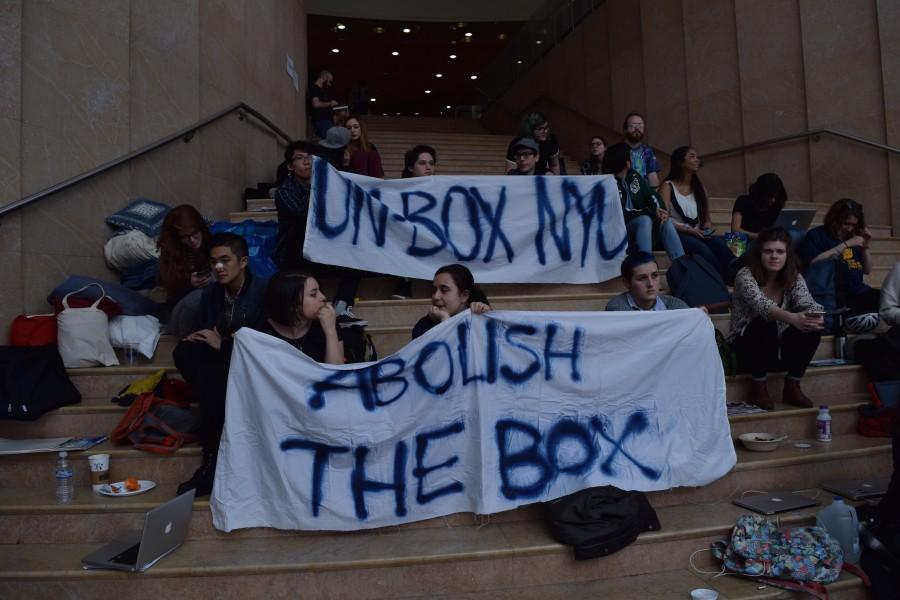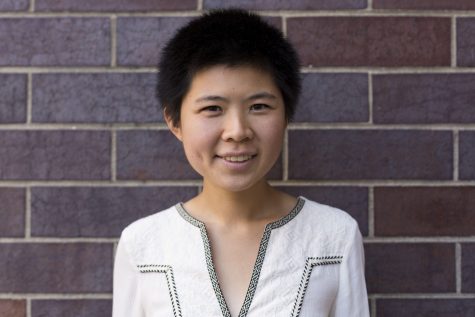NYU Removes Question Regarding Criminal History From Its Application
A 33 hour sit-in in March seems to have persuaded the university to change its policy regarding asking applicants about criminal background.
August 3, 2016
NYU unboxed a summer surprise on Monday when it announced that hopeful Violets’ criminal histories will no longer be factored in the application process — to an extent.
While the Common Application asks applicants to check a box if they have been previously incarcerated, the university said that it will be doing away with such a question. In its place will be a question asking students if they have been incarcerated for a violent crime.
The move comes after a semester of heated protests from a group of students, including an occupation of Kimmel back in March.
Gallatin sophomore Katie Mulkowsky dedicated a paper to the topic and participated in the Incarceration to Education Coalition sit-in, but Mulkowsky thinks NYU’s announcement is only surface-level progress.
“Our criminal justice system’s inarguable flaws are rooted in structural discrimination,” Mulkowsky said. “Considering the precedent NYU can set by acknowledging and eliminating the Box’s problematic nature — and the responsibility NYU has to its characteristically ‘diverse,’ urban student body — I feel that more complete progressive policy change is ultimately necessary.”
Mulkowsky believes that the existing research says enough: formerly incarcerated people are no more likely to commit criminal acts on university campuses than those with clean records.
Meanwhile, Tandon junior Zaid Matalka said he was annoyed when he saw the Facebook post announcing the decision because he believes that moves such as banning the box have many consequences.
“Drug trafficking and theft are nonviolent offenses, but if a person is inclined to steal and ends up your roommate for a year, you are entitled to know,” Matalka said. “By avoiding the question, the university is acting recklessly against the interests of its student body.”
He does not believe using the box to judge students is discrimination and clarified that he does not believe all criminals are bad people.
A press release from the university said that NYU did not use the box as a screening mechanism before this announcement and that it would continue utilizing the same three-step decision process as before:
- NYU will ask supplemental, more specific questions regarding criminal convictions.
- The admissions decisions will continue to be made with a box-blind evaluation (for both supplemental questions and Common App questions).
- A special committee composed of admission officers, university staff and faculty will conduct a holistic review of all applicants who denoted any criminal background.
NYU’s Vice President for Enrollment Management MJ Knoll-Finn said that this process is to maintain a balance between keeping the campus safe while providing equal opportunities.
“If someone has committed a violent crime, we want to know and want to have an opportunity to get more information from the applicant, judge the context and evaluate whether there might be ongoing safety concerns for our campus,” Knoll-Finn said.
“Notwithstanding the announcement we are making today, we still look forward to participating in and seeing the findings from the Common App’s wide-ranging research study on this matter.”
Email Diamond Naga Siu at [email protected].

















































































































































Eric Thomas • Aug 15, 2016 at 9:49 am
Everything is very open with a clear clarification of the issues. It was definitely informative. Parker Waichman